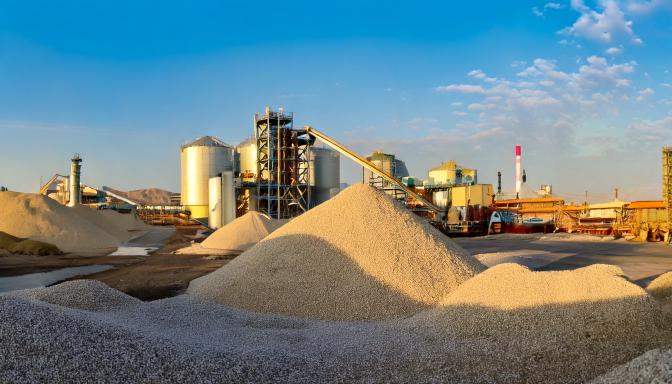1. Oil Refining and Filtration
In the oil and petrochemical industry, perlite is used as a filtration medium to remove impurities from oils, fuels, and other petrochemical products. Its porous structure allows it to trap suspended solids, dust, and contaminants, ensuring the oil or chemical product meets the required quality standards. Perlite is particularly effective in refining processes that involve filtering out fine particles, pigments, and carbon residues from oils, including edible oils and lubricants.
2. Absorbent for Oil Spills
Perlite’s high absorbency makes it an excellent material for cleaning up oil spills in marine environments or industrial settings. It is capable of absorbing significant amounts of oil relative to its weight, helping to minimize environmental damage. Due to its light weight, perlite can easily be spread over large surface areas to absorb and remove oil from water or land surfaces. Once saturated, the oil-laden perlite can be safely removed and disposed of.
- Catalyst Support in Petrochemical Reactions
In certain petrochemical processes, perlite is used as a support for catalysts in reactions like cracking, reforming, and hydrogenation. Its high surface area allows it to provide a stable platform for the catalyst, improving the efficiency and selectivity of the chemical reactions. By supporting catalysts, perlite helps to optimize reaction rates and yield in the production of various petrochemical products such as plastics, fuels, and other chemicals. - Production of Lightweight Concrete and Insulation
In the construction of oil rigs, petrochemical facilities, and refineries, perlite is often used as a lightweight aggregate in the production of concrete and insulation materials. Its low density and excellent insulating properties make it ideal for use in heat-resistant concrete or insulation systems. This application is critical for maintaining safety in the high-temperature environments of petrochemical processing plants. - Filtration of Gaseous Compounds
Perlite is used in some petrochemical operations to filter gaseous compounds. Due to its ability to adsorb and trap molecules, perlite can help in the removal of contaminants or pollutants from gases produced during petrochemical processes. It is especially useful for filtering gases in environments where low-maintenance and high-efficiency filtration are necessary.
- Desulfurization of Fuels
Perlite has been used in the desulfurization process of fuels in the petrochemical industry. It is capable of adsorbing sulfur compounds, which are then removed from the fuel, making it suitable for cleaner combustion. This is particularly important in producing high-quality fuels that meet environmental regulations regarding sulfur emissions. - Reactor Support and Insulation
Perlite’s high thermal resistance makes it an excellent material for providing insulation in reactors and other high-temperature processing equipment in the petrochemical industry. It can be used to insulate pipelines, storage tanks, and reactors, ensuring that heat is retained or dissipated as needed and helping to maintain optimal temperatures for chemical processes. - In the Manufacture of Polyethylene and Polystyrene
Perlite can be used as a processing aid in the production of polyethylene and polystyrene in petrochemical industries. The material helps to control viscosity during polymerization, improving product quality and processing efficiency.
Advantages of Using Perlite in the Oil and Petrochemical Industry:
- High Absorbent Capacity: Perlite can absorb large quantities of oils and chemicals, making it an excellent material for oil spill response and filtration applications.
- Lightweight: Perlite’s low weight makes it easy to handle, transport, and apply in various processes.
- Thermal Insulation: Perlite provides excellent thermal insulation, which is crucial for managing temperature-sensitive processes in petrochemical plants.
- Non-Toxic and Environmentally Safe: Perlite is non-toxic and safe to use, ensuring minimal environmental impact when used in oil spill cleanup and other applications.
- Increased Filtration Efficiency: Its high surface area and porous structure allow for better filtration and removal of impurities from petrochemical products.



